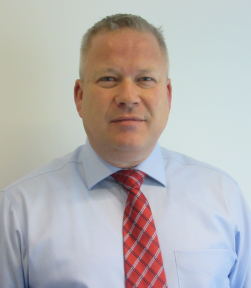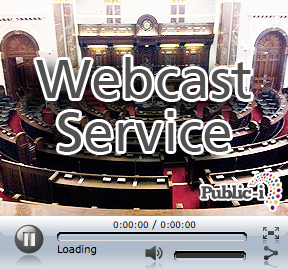World Social Work Day 2016 - promoting dignity
Marking World Social Work Day 2016, Dr Tony Stanley, chief social worker at Birmingham City Council, talks about how we are working openly and honestly with families to ensure dignity and social justice
The theme this year is ‘Promoting the Dignity and Worth of Peoples’ - a solid message and I’m sure every social worker aspires to achieve just that. Excellent social work can make a world of difference to vulnerable children and their families. And conversely, poor practice can harm. So we need great practitioners, the best workplaces and solid leadership to support us to do the very best social work we can.
This is a rewarding profession, but it’s not easy and the demands on us growing. Across England there has been an 80% increase in child protection investigations since 2009. We are doing a lot of activity; and a great deal of intrusion into family life. And not all of it justified or necessary. To highlight what’s wrong - a child living in Blackpool is 12 times more likely to be subject to child protection procedures than a child in leafy Richmond, in London. How do we explain this differential? Are they really more at risk? I think we should be debating what we do and why we do it. Are the rights of children and their families being upheld equitably in a system where more and more investigations are happening with less and less real help being offered?
So, in the name of helping, are we always?
Here in Birmingham, our strengths-based approach to social work and early help practice – illustrated by the Family Group Conference (FGC) model and tools from ‘signs of safety’ – are helping us to work respectfully, openly and honestly with families. We use practice tools to help us to arrive at decisions and judgments – they help us to explain to families what we are doing and what they need to do. Professional practice means being accountable for our decisions and rigorous in application. That is right and just and we can demonstrate dignity to others when we are respectful and clear on what we are doing and why. Families appreciate openness and honesty.
Our social work happens in family front-rooms and classrooms, and in hubs and offices. Our managers and teams are important for debate, challenge, reflection and learning. The families we work with are our partners. We all want the same thing – for children to be loved and safe, thriving and doing well. We need to challenge each other when we hear the language of ‘direct work’ to mean ‘something I did with a child’ – all of our work is social work and it is always direct. Case recording is social work.
One of the best parts of my job is to work alongside social workers, in the hubs and offices across the city, in core groups and meetings with families, and hear about what helps us to deliver great practice. I was out this week with committed social workers and supportive managers. I talk to as many families as I can about our work and am keen to listen. The new practice evaluation system is now underway, and family feedback is telling us that our families understand why we are there and they have found our social work helpful. A report about the key messages will be out soon. We need to learn about our work by listening to families and children. For many families, they will feel shame when we knock on the door. We need to work with this, and understand that our involvement may well feel shaming.
Act courageously and put people first – that is working with dignity. Challenge form-filling that offers no value. Keep focused on the things that matter and do the things that are right for families. Argue back to ‘process compliance’ that will be influential, and remember:
- Excellent social work changes lives. We do make a real difference, even in the most difficult of situations.
- Transcend the workplace or office – social work is not defined by where we work, or which local authority we are employed by. We need to transcend the workplace so that social work is promoted by us in our workplaces, and translated through the various forms and computer tasks we need to do. This will help us work on purpose, be focused on a change model, and see case recording as logical and helpful.
- Social work is a moral enterprise and an intellectual endeavour – we are part of an international discipline that promotes human rights and social justice ideals. On behalf of the state we help those vulnerable and in need of our help. Our starting point is often very different to other state agencies and services.
- Focus on the lifespan approach – keep this in mind. Children belong to families, and vulnerable adults might live there to. Widen the circle by bringing everyone you can to the family table to help decide what needs to happen.
- Culture eats strategy for breakfast – we can shape our workplace culture. What can you do to render social work more visible and reinforcing?
- Evaluate your practice – how do you know it is helpful? What do families tell you?
World social work day is an opportunity to reflect on why we do social work. Promoting dignity and social justice for people is a sound goal and a solid message for the year ahead.





